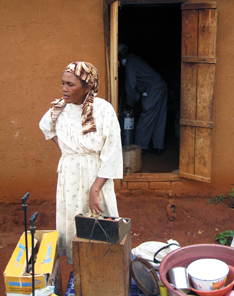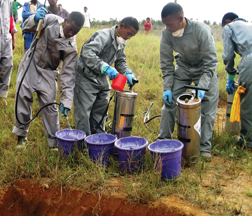Madagascar, the world’s fourth largest island, is home to a great number of unique plants and animals. The island also faces high rates of malaria, and its elimination is one of the government’s major goals. Protecting this unique environment during IRS programs is of prime importance to the country and has been the focus of PMI-supported IRS in Madagascar.
During a post campaign environmental assessment visit following the first round of PMI-supported spraying in Madagascar, the USAID Regional Environmental Officer found weaknesses in the existing system for storage of pesticides, disposal of used insecticide sachets, and the release of pesticide residue in the environment. In response, PMI worked closely with representatives from both the NMCP and the National Environment Office to implement new environmental measures, including in-depth training of individuals in the safe handling of insecticides, preparation of improved storage facilities in environmentally sound sites, introduction of progressive rinsing of spray pumps, digging of soak pits for proper disposal of rinse water, and improved control of solid waste.
On a supervisory visit during the latest campaign, the USAID Regional Environmental Officer remarked on his “sense of satisfaction” with the implementation of the spraying operations, which showed a “vast improvement from previous campaigns,” in terms of the practices adopted for the safe management and oversight of pesticides.
PMI’s close collaboration with the NMCP and other partners will help to ensure that the newly instituted environmental compliance measures are practiced throughout the country’s IRS campaign, including in those districts supported by the Global Fund. This will result in reduced health risks to sprayers and will help protect Madagascar’s unique environment. These environmental measures also will help the country adopt other types of insecticides as needed to ensure ongoing, effective coverage against mosquitoes, and ultimately protect the people who live there.


